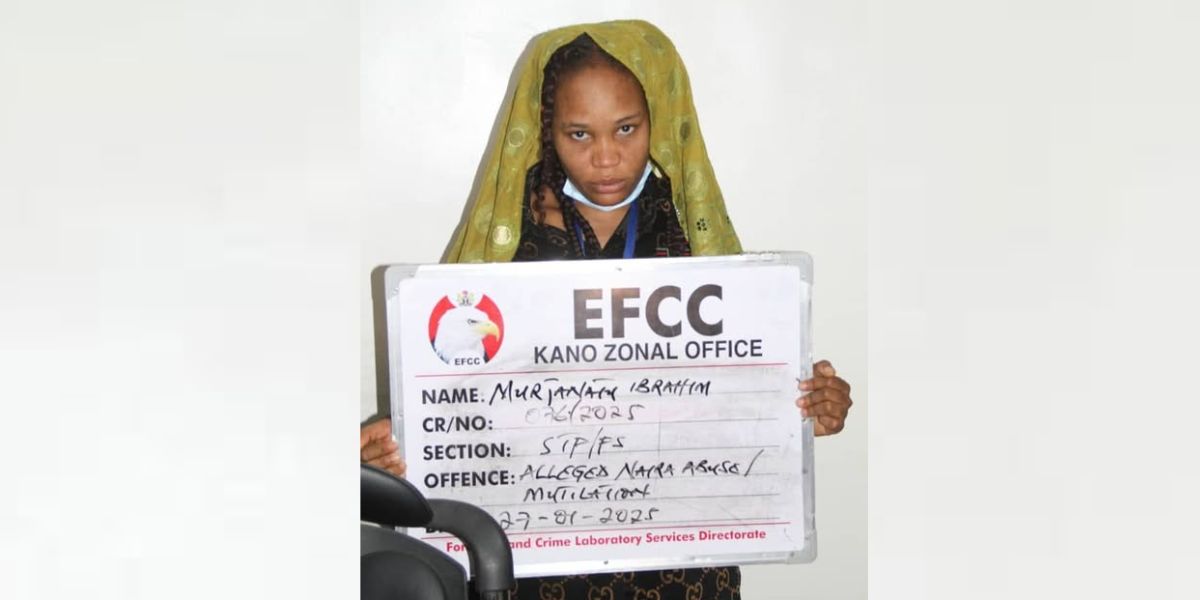Physical Address
304 North Cardinal St.
Dorchester Center, MA 02124
Physical Address
304 North Cardinal St.
Dorchester Center, MA 02124


In a dramatic twist that blends punishment with public education, popular Kano-based TikTok influencer Murja Ibrahim Kunya, widely known as Murja Kunya, has been sentenced to six months in prison for abusing the Nigerian Naira.
But here’s the kicker—she’s also now an EFCC and CBN ambassador. Yep, from court bench to campaigner, all in one verdict.
It all started in December 2023 when Kunya was seen in a viral video spraying and stomping on Naira notes during a party at the luxurious Tahir Guest Palace in Kano. That moment of fun quickly turned into a legal nightmare.
Despite being arrested in January 2025, Kunya initially dodged her court appearance, forcing the EFCC into weeks of intense surveillance and re-arrest. She was finally brought back into custody in March and arraigned in May—where she pleaded guilty to the charge.
“You… tampered with Naira notes by spraying and matching on same… and thereby committed an offence contrary to Section 21(1) of the Central Bank of Nigeria Act, 2007.”
On May 28, 2025, Justice Simone Amobeda of the Federal High Court in Kano sentenced Kunya to six months imprisonment with an option of a ₦50,000 fine.
But the court didn’t stop there. Recognizing her massive influence on social media, the judge also issued a unique consequential order: Murja is now officially appointed as an online ambassador for both the EFCC and CBN to lead campaigns against Naira abuse.
Talk about turning a penalty into a purpose!
This isn’t just another celebrity legal drama—it reflects the Nigerian government’s renewed crackdown on currency abuse, especially as it becomes more rampant in social media-driven party culture.
The Central Bank’s law is clear: Spraying, stepping on, or mishandling Naira notes is a crime—no matter your status or following.
Just a few weeks ago, two other TikTok stars—Tee Dollar and TobiNation—were handed six-month jail terms (with ₦200,000 fines) by a Lagos court for similar offenses. They were caught on camera spraying N200 notes at a party in Ikoyi.
Their cases, like Kunya’s, were backed by video evidence and swift EFCC action.
Murja’s case highlights a growing tension between online clout culture and legal boundaries. While it’s easy to get carried away in the moment—especially when followers are watching—the law isn’t watching likes, it’s watching actions.
Murja’s sentencing is more than just a legal caution—it’s a national message. Whether you’re a content creator, event planner, or partygoer, remember: the Naira is not confetti. Respect it, or face the consequences.
Still, her role as a new anti-Naira abuse ambassador gives her a shot at redemption—and perhaps a platform to help others avoid her misstep.
Do you think the sentence was fair? Should influencers be held to a higher standard when it comes to public behavior? Let’s talk in the comments!